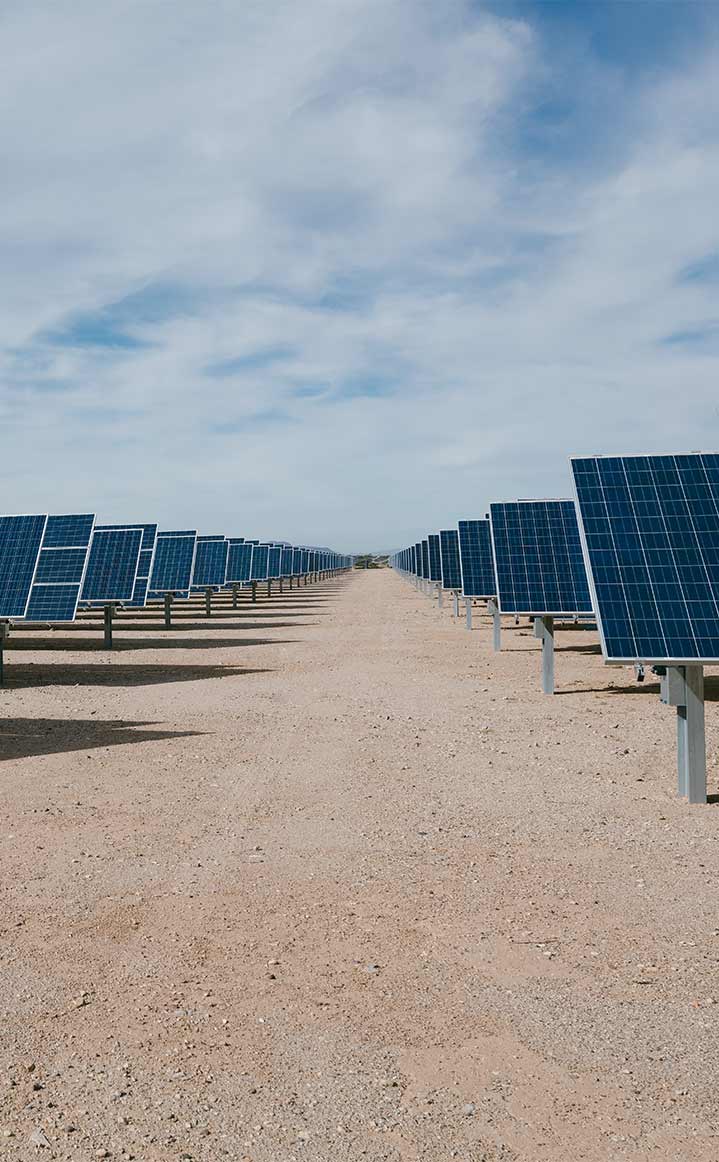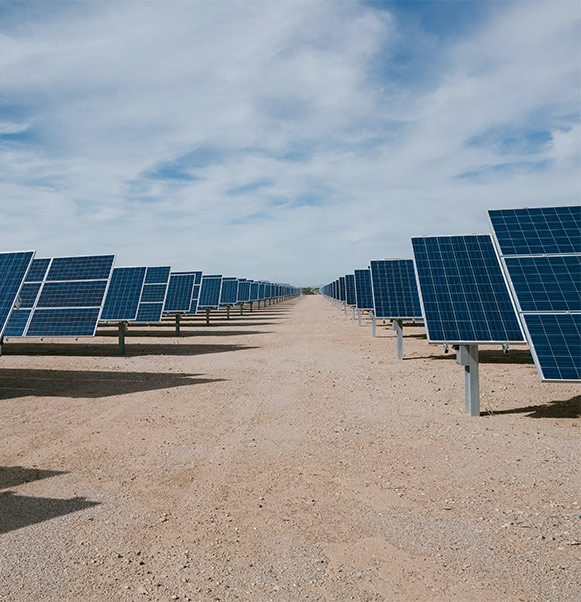

Making sure the right choice is also the cheaper choice

How to get to subsidy free heat pumps
To reach net zero emissions, we will have to stop using gas boilers to heat our homes. It’s a blunt statement but we have some stark choices to make if we are to tackle the climate crisis. This is the message from E.ON UK CEO Michael Lewis as he explains the critical role heat pumps must play in the renewable energy revolution.
Most people don’t even realise their gas boiler is one of the biggest contributors to climate change in Britain1. One of the most effective actions to contribute to the fight against climate change is to better insulate our homes and swap our gas boiler for a lower carbon alternative form of heating.
According to the Committee on Climate Change2, a future emission-free Britain needs over half of homes to haveuse heat pumps for heating instead of gas boilers, with district heating via heat networks (which could also be using heat pumps on a larger, communal scale) making up more than a third of home heatingmuch of the remainder. Hydrogen boilers could make up around 5% of heating, in regions where hydrogen can support clusters of heavy industry to decarbonise too.
Unfortunately, Britain today installs fewer than 30,000 heat pumps each year and is pretty much bottom of the league when we look at what other countries are doing to decarbonise their domestic heating needs.
According to the lastest EHPA data, the UK is installing fewer than one heat pump per 1,000 households. In comparison, Norway is installing 46.
No wonder then that the Prime Minister has set the target of increasing this to 600,000 heat pumps a year by 2028. A figure which will have to climb to a million by the end of the decade and higher than that for each year of the 2030s if we are to meet the 6th carbon budget.
The ambition is laudable but in reality it all sounds a bit too hard, particularly as heat pumps today can be expensive to install and run, and it’s realistic to assume people just won’t choose to swap their gas boiler for something new, something relatively unknown.
However, we’ve seen this story play out before - in wind power, in solar PV, and again in domestic batteries – and I am convinced we can be optimistic about our ability to make heat pumps and decarbonising heat a British success story. All the ingredients are there. All it takes is political will and the industrial and technical nous of players such as E.ON and others will come to the fore and develop the products and services that are affordable and effective and give households the confidence to switch.
Just like other alternative energy technologies, there needs to be a journey to subsidy-free heat pumps and we need to start planning that journey today.
Every one of us has already helped to support the massive investment in low carbon electricity generation that has made Britain’s electricity so much cleaner. We’ve done that through a levy on our electricity bills which has been growing steadily over the last decade and now accounts for over 20% of an average domestic electricity bill. Perversely, while those charges have spurred the growth of large-scale renewables, at the customer level they are also pushing up the cost of low carbon electricity heating systems such as heat pumps, when compared to using gas. Electricity has also incorporated the ‘polluter pays’ principle through the pricing of carbon which is currently absent in gas. In short, you pay a tax when gas is used to generate electricity; you don’t pay that tax when you use the same gas to heat your home.
These policy decisions in Britain run in the face of what others are doing. Most countries have made sure that they don’t effectively subsidise gas over clean electricity, and those that do are making changes to mitigate this distortion.
Now is the time to take action and put energy bills onto a more sustainable path, consistent with our net zero goals. Analysis, published today by Public First3 provides an elegant and compelling set of recommendations that square this circle:
First, let’s introduce a carbon tax on domestic fossil heating. This will ensure consistency between the different options available and overnight remove the implicit subsidies which fossil fuels currently enjoy.
Second, let’s have a fairer, more progressive, approach to the way we fund low carbon investments, by taking the costs of the Renewable Obligation, the Feed-in Tariff and the Contract for Difference out of the electricity bill and bringing them into government expenditure.
The revenue raised from a carbon tax on domestic heating can help fund the removal of these policy costs – so neither households nor the Government are worse off, but those who now choose to switch to heating via a heat pump will be quids in, providing the economic motivation to switch. This is essential if we are to kickstart the growth of a whole new industry, home-grown in Britain.
There is an argument that we should simply move those levies from electricity bills to gas bills but the awful reality of such a simplistic option is that you penalise those people who can’t afford to immediately invest in a brand new heating system. That’s unfair. Done correctly, reforms should protect customers who take longer to transition away from gas, but Government should not be afraid to provide additional compensation for the most vulnerable in society through, for example, a rebate and a more ambitious energy efficiency programme. Delivering a fair and just transition to net zero emissions is non-negotiable.
Whilst these reforms to the energy bill will make the economics of running a heat pump compelling, providing motivation for customers to consider switching away from gas, we also need to drive down the cost of buying a heat pump.
Again, I am absolutely convinced this will happen and the answer lies with what we have already achieved in offshore wind. Once industry has confidence in serious and sustained demand for heat pumps in Britain, our heating manufacturers and the wider supply chain will invest, and innovation and economies of scale will follow. We believe this could cut capital and installation costs in half over time, making subsidies unnecessary, just as we have achieved in offshore wind.
The Future Home Standard will provide a baseload of new demand for heat pumps, but this will need to be complemented with other measures including a more ambitious Clean Heat Grant scheme and longer term regulation including a clear phase out date for gas boilers to enable demand to meet at least 600,000 a year in 2028 and one million a year from 2030. Increasing supply of heat pumps 20 to 30 times over this decade will deliver economies of scale and move the sector from a cottage industry to an industrialised giant, and the prize for the UK is to secure well paid green jobs in the manufacturing and installation of these new low carbon heating systems.
The final essential component for making heat pumps subsidy-free is access to cheap long-term finance. This should be a key remit of the National Infrastructure Bank, not just helping to finance large projects but to unlock the opportunities for everyone. Building on what works in other countries such as Germany, zero or very low interest long term loans will make heat pumps affordable for the masses, enabling Government to ease back on public subsidy over the 2020s so that by the end of the decade, the sector can emulate the scale and success of what we’ve achieved in offshore wind.
The heat and buildings strategy must address these issues and provide the supply chain with the confidence to invest in this positive future. Now’s the time to act and a new British industry and thousands of green jobs are achievable.
1. https://es.catapult.org.uk/news/1-in-2-not-aware-of-gas-boilers-climate-impact-survey/
2. https://www.theccc.org.uk/wp-content/uploads/2020/12/The-Sixth-Carbon-Budget-The-UKs-path-to-Net-Zero.pdf
3. http://www.publicfirst.co.uk/wp-content/uploads/2021/04/OptionsEnergyBillMaster.pdf


Written by Michael Lewis
Michael joined E.ON UK as CEO in 2017, having worked in the energy industry for over 25 years. He joined Powergen in 1993, originally working in technical and environmental roles, before moving into corporate strategy and development. Following E.ON’s acquisition of Powergen in 2002, he moved to E.ON’s headquarters in Düsseldorf as Vice President Corporate Development. In 2007, Michael was appointed Managing Director for Europe on the Board of E.ON Climate and Renewables, before becoming Chief Operating Officer in 2012 and then CEO of E.ON Climate and Renewables in 2015. Michael is a Chartered Engineer (CEng) and a Fellow of the Institution of Mechanical Engineers (FIMechE).
Share to:


Your business
There’s no such thing as an ‘average’ business, so we take a look at how companies like yours (and your rivals) are changing the way they think about energy to earn a competitive advantage.


Tomorrow is .on
This is the new energy world – smart, personalised and sustainable – and a look at the global trends and cultural shifts driving the shift towards sustainability across the planet.


Going greener
Whether you’re driven by environmental and social concerns, or responding to customer demand, we take a look at the opportunities offered by renewable and sustainable business solutions.